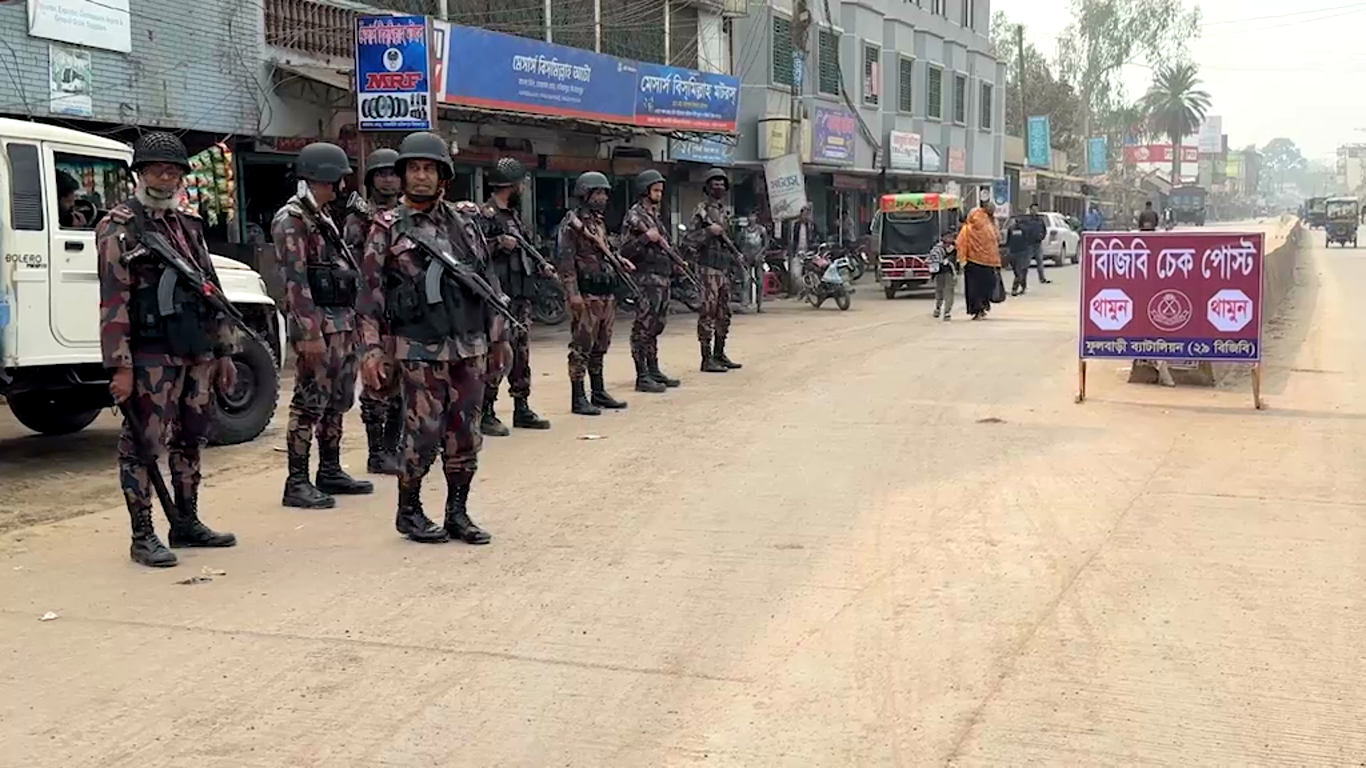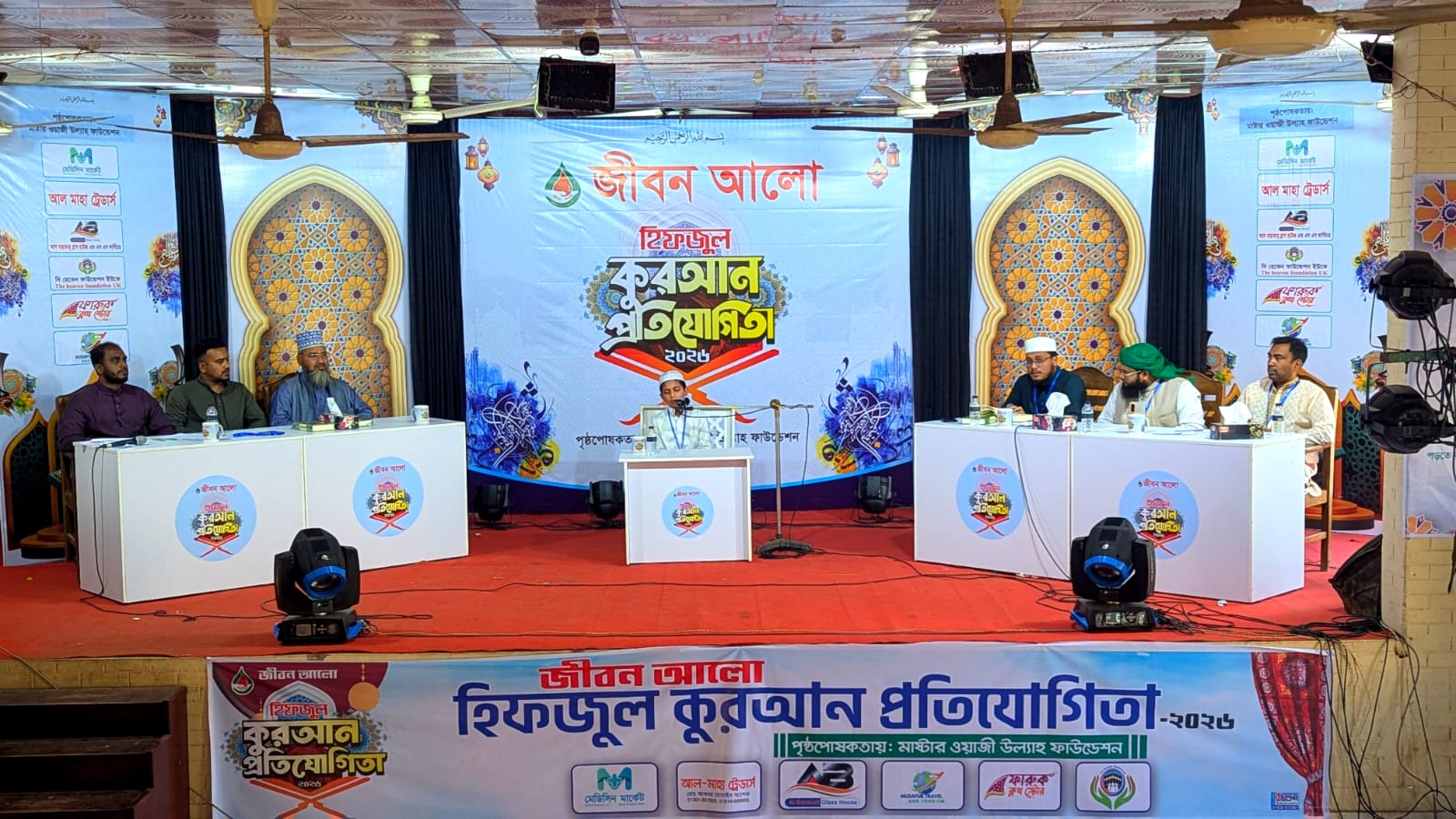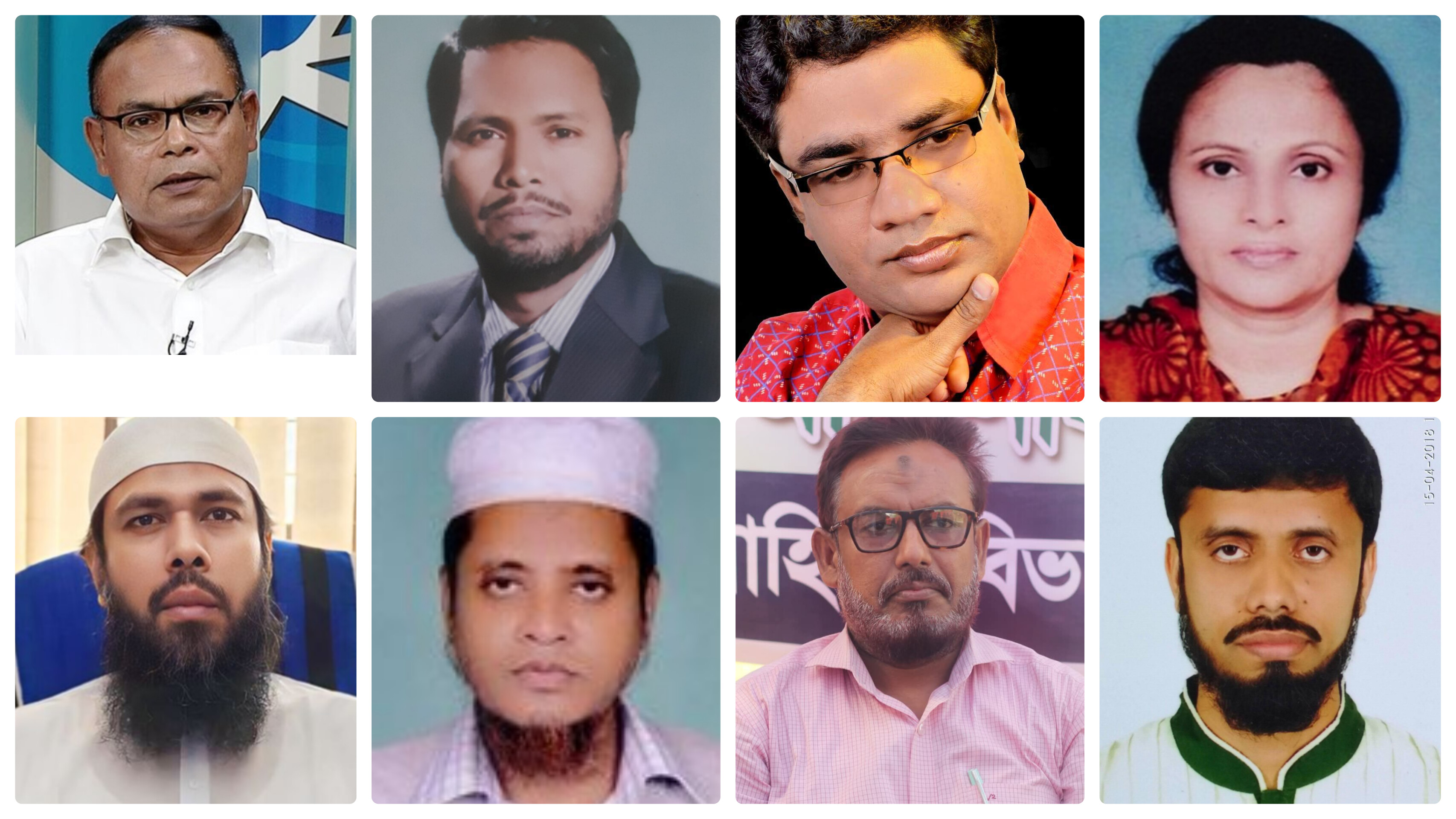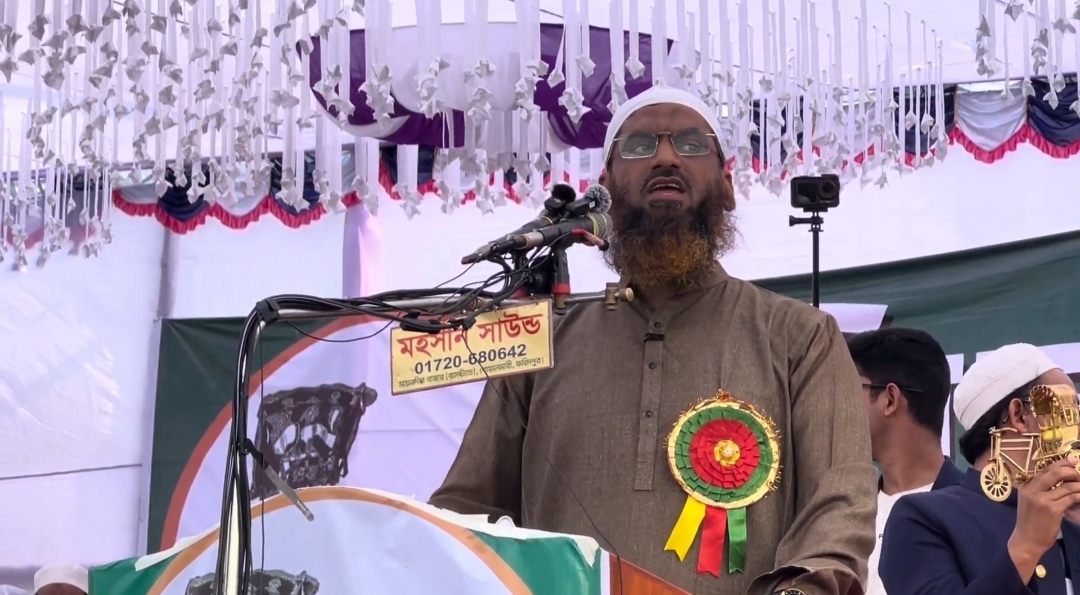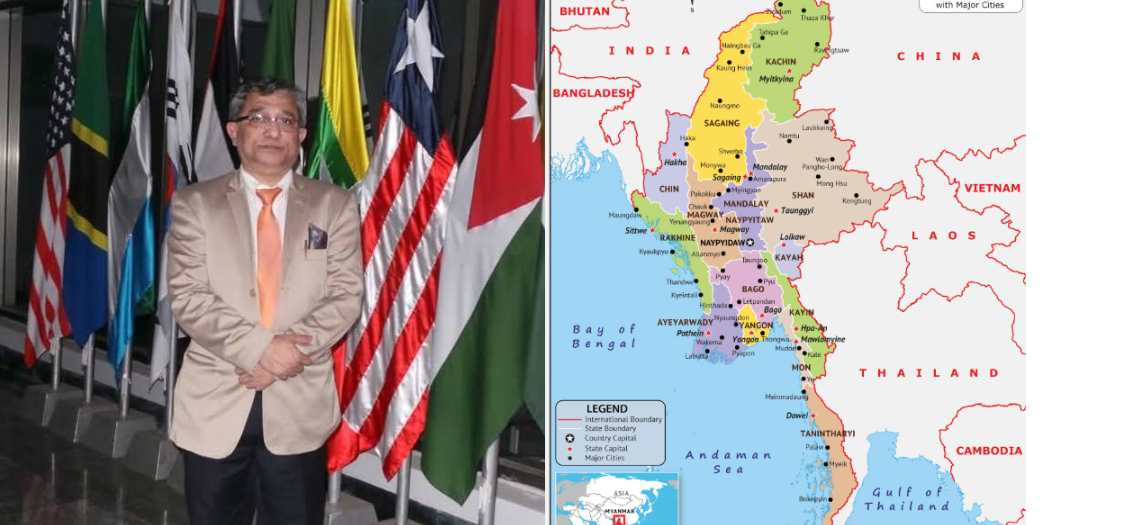Professor Syed Ahsanul Alam:
KNF's recent armed violence in Bandarban and its vicinity in the hill tract specially looting banks attacking police stations and taking weapons has startled the Bangladeshi common people. Different media, different news agencies, and different experts wishfully colored the incidents with little information and not going deep into the issue. The KNF Claims to represent more than half a dozen ethnic groups such as Murang, Khumi, Bom, Kheyang, Chak, Pankho and Tongchangya. and clearly mentions they are deceived to date if compared with some other tribal ethnic groups who came under the peace treaty enforced by our honorable Prime Minister Sheikh Hasina.
On 07 April 2024 Ittefaq published that the Kuki-Chin National Front (KNF) has been demanding the establishment of an 'autonomous state' in Chittagong Hill Tracts since long ago. They wanted to form a autonomous state with nine upazilas . This time, the KNF armed group withdrew from that demand. They have demanded the establishment of 'self-governing council' with seven upazilas of the region.
KNF made these demands on social media Facebook on Saturday (April 6), 2023 night. The post containing the demand was made on a Facebook page named 'Kuki-Chin National Front (KNF)' around 11:30 pm.
The post mentions that they want to form a council called 'Kuki-Chin Territorial Council'. Through which they want to keep the control of that region to themselves . Besides, the organization is also demanding an armed force called Kuki-Chin Armed Battalion (KAB).
Their demands include, 'withdrawal of cases against KNF members. Repatriation of Bam people living in Mizoram, India and Khumi and Mro people in Paletua area of Myanmar.'
Earlier, the Peace Establishment Committee held two rounds of face-to-face dialogue with the Kuki-Chin National Front, an armed organization of the Bandarban hills. Although the third round of dialogue was supposed to be held in the middle of April, before that terrorists launched armed attacks in Ruma of Bandarban.
The Kuki problem dates back more than one or two centuries and there is no good reason to get lost in the theory jungle of the Kuki History. This region has been a hotbed of insurgency and terrorist activities since the nation's inception. The late 1970s and 1980s saw terrorist activities orchestrated by groups like the Pahari Chatra Jono Somoti Sangha (PCJSS), followed by destabilization efforts by the United People's Democratic Front (UPDF) after the 1997 peace accord. More recently, the emergence of the Kuki-Chin group has added another layer of complexity to the conflict landscape in the CHT.
The Bangladesh Army has historically demonstrated its commitment and professionalism in countering threats posed by groups like PCJSS and UPDF. However, the current global context presents a spordic different scenario. The Kuki-Chin community, spanning Myanmar and India's Mizoram state in the Northeast, has engaged in attacks against their respective governments. The CHT, located in the southeastern part of Bangladesh, is a region known for its ethnic diversity and complex history of conflict. The indigenous communities of the region, including the Chakma, Marma, Tripura and Kuki peoples, have long-standing grievances related to land rights, political representation, and cultural autonomy. These grievances have fueled armed separatist movements, led by groups like PCJSS, UPDF and the Kuki National Front (KNF).
The Kuki's recent charter of demand as published by some newspapers depicts that the intention of this charter of demand is to give the intelligentsia and academics of the country along with the government about their current objectives. One can adore the Bangladesh army who handled the issue most professionally rather than giving the Kuki the opportunity of any escalation. Every quarter including KNF themselves will accept that they will have to face fatal consequences if they challenge our national security and sovereignty. We are proud that our defense force who are already acknowledged for their skill and professionalism to keep their role in peacekeeping in different parts of the world. It is most likely that Bangladesh's defense force will manage to contain the kukri's resentment and grudge peacefully and professionally.
Unlike other writers, I would conclude putting forward that behind the Kuki people's resentment and grudge, neighboring powers are playing to use them or abuse them for their regional interest. Behind kuki people there are regional powers and also disgrant of the kuki’s and the more than six other ethnic group about their religious rights and civic rights have to be given great respect in solving the problem. One has to remember the Kuki’s are scattered in the hills of Bangladesh, India and Burma. Thus at least believers of three religions Buddhist, Christian, and Muslim are inhabitants of the disturbing zone in question. So, any insurgency or separatist movement can only be solved by giving all the people believers of different religion a governance ensuring human dignity and free from any exploitation. Another great impediment towards any solution to the conflict is that region is the multibillion-dollar drug business. Still, we look forward to our army to proceed political, military economic and religious insight to bring sustainable peace in the conflict-affected hill tracts of Bangladesh.
Writer: Professor Syed Ahsanul Alam
University of Chittagong
Geo-Political Analyst
